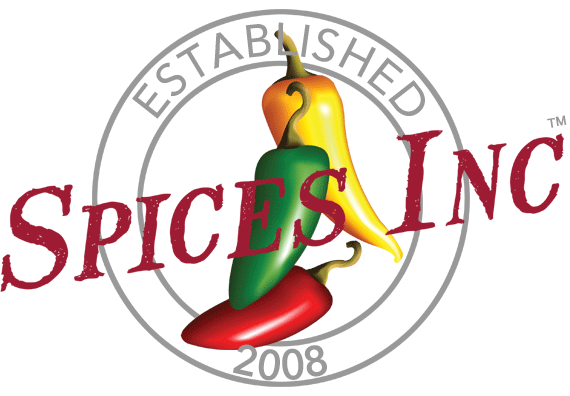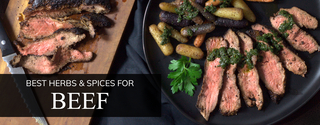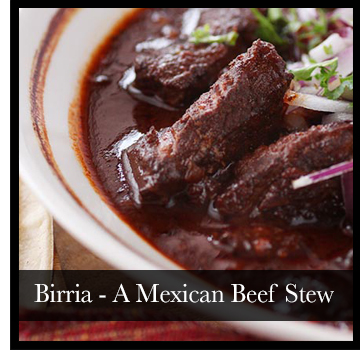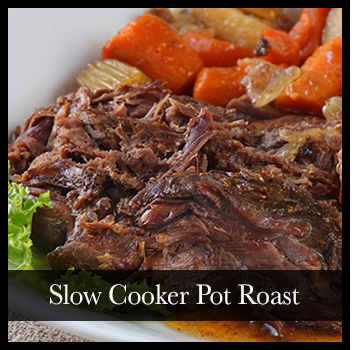The Best Herbs and Spices for Beef
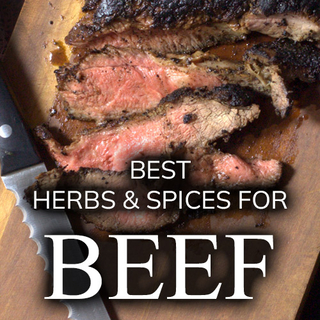
The Best Herbs and Spices for Beef
Because of beef’s hearty, robust nature, flavor-forward spices like garlic and onion or herbs like rosemary and oregano are the best choices for an unforgettable beef dinner.
An important thing to consider when selecting seasonings for your meal is that you should be seasoning beef based on the cut. Tough, braise-friendly benefits from hearty herbs that can stand up to a simmer, while a quick-cooking ground beef has much more flexibility and can support a broader range of flavors.
For more than a decade, Spices, Inc. has been sourcing spices and herbs from around the world. We want to help you make the best food possible by providing you with more than just seasonings. We also want to pass along the knowledge of how to make a terrific meal by making your spices work for you.
Staple Spices for Flavoring Beef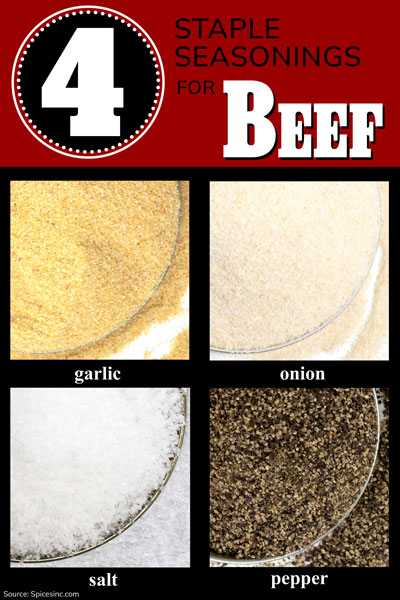
Garlic, onion, black pepper, and salt are staple spices when flavoring beef.
Garlic and onion are potent, pungent aromatics that play well against beef’s deep, meaty umami.
Black pepper has a resinous, piney quality and a bit of heat that radiates from its center, but it also has a lighter, floral aspect among its top notes that helps deliver a bit of playfulness.
Salt is a must-have for beef. It helps evoke beef’s nuanced flavor and, depending on when and how it’s used, can help tenderize your beef.
These four spices will help you create a delicious meal if you have nothing else in the house. They also go well with other beef-friendly spices and herbs [beef category page] and can create a solid base of flavor that you can build on for all your favorite beef dishes.
Spices to Use for a Brisket
Our top-five list of spices to use to make a stellar brisket are:
- Paprika
- Cumin
- Mustard powder
- Coriander
- Brown sugar
Brisket is a cut of beef taken from the lower part of a cow’s chest. It’s a working muscle and a tough cut of meat. Thus it’s best if it’s cooked for a long time under low heat to give the connective tissue that runs through the muscle a chance to break down into a deliciously tender result.
Because of the extended cooking time, you need to use spices that won’t diminish in the heat. You can make an incredible brisket using the staple spices mentioned above, and you should incorporate them into your seasoning blend as you see fit.
Paprika, Cumin, Mustard powder, and Coriander add flavor and fragrance to this dish, while Brown sugar melts into the meat and helps to create the beautiful, sweet brown crust called the bark signature trait of delicious brisket. Combining these spices will help you stylize your brisket, so it’s a unique reflection of your taste.
If you want to use herbs with brisket, choose a sturdy herb that can stand up for a long time in the oven or smoker, like rosemary or thyme.
Spices to Use for Beef Stew
We find that the inviting nature of beef stew uses spices that evoke comfort food flavors, like:
- Celery seed
- Cayenne chile pepper
- Smoked paprika
- Allspice
- Fennel seed
These spices are inherently warm and welcoming and add a deep, cozy richness to beef stew. They are also able to withstand a long time under heat. Stew meat is another tough kind of meat that requires long cooking times, though it can be taken from several parts of the cow. While you can and probably should incorporate some of the staple spices into a seasoning mix for beef stew, these top five spices add heat, smoke, crisp and peppery flavor, and a ton of aroma to a stew.
You could also experiment with Mexican flavors by adding Cumin, Coriander, or your favorite chili powder [link to category page]. Beef also works well with chile peppers [link to chiles], so feel free to add your favorite chile flakes to a stew.
Dried Herbs for Beef
Rosemary, Thyme, Oregano, Sage, and Bay leaves are the best dried herbs to use when cooking beef.
To use dried herbs with beef, you should consider which ones you want to include in your recipe and when you should add them. Because of beef’s primary solid flavor, it’s easy to lose an herb’s more delicate qualities when cooking.
The herbs listed above express strong flavors and can be added at the beginning of cooking; while many of these herbs will still contribute to the flavor of a dish if added later in the cooking process, whole Bay Leaves should be added early because it takes time to extract their flavor into a dish.
Best Herbs for Beef Stew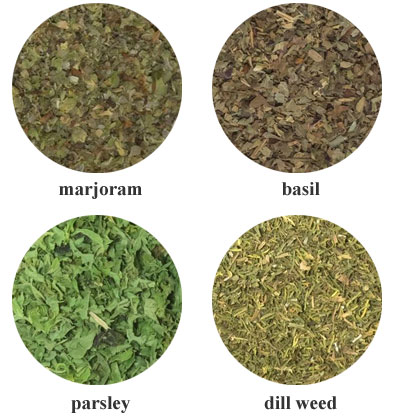
Our top herbs for Beef Stew are:
- Marjoram
- Basil
- Parsley
- Dill Weed
Marjoram has a peppery flavor and a green aroma. It can be added at the beginning of cooking, but its flavor is maximized if you add some more to your dish 10 or 15 minutes before you’re ready to serve it. That will allow the flavors in marjoram to come out, but they’ll still be fresh and present.
It’s better to use Basil, Parsley, and Dill weed at the end of cooking, adding it right before you’re ready to serve your dish. Basil delivers a mint-and-pepper flavor, Parsley has a fresh, almost minty greenness, and no stroganoff would be complete without the sweet pungency of Dill.
You can use these herbs in any combination with our favorite dried herbs for beef to give a heavy stew an herbaceous lift.
Best Herbs for Roast Beef
The best herbs to use for a fragrant and delicious roast beef are:
- Basil
- Summer Savory
- Tarragon
Basil, Summer Savory, and Tarragon are all part of the mint family and will add a fresh and playful flavor to roast beef. Combine these with any preferred beef herbs and create your knockout roast beef!
Roast beef can be cut from several parts of the cow; it can come from the shoulder, the rear leg, the rib section, the upper thigh, and hindquarters. These are all working muscles and require a fairly long time under low heat to cook properly and become juicy and tender.
Since roast beef spends the majority of its time in the oven cooking at a relatively low temperature, often between 325-350°F, you can incorporate some more delicate herbs into a spice rub for the oven. The heat won’t destroy their flavor, and the herbs won’t burn at those temperatures. Make sure they’re mixed well with cooking oil before putting them on the meat to provide your herbs with a bit of a barrier that will protect them from the heat and help pull out their flavor.
Best Herbs for Ground Beef
The best herbs for ground beef are those listed above; you can use Rosemary, Thyme, Oregano, or Sage for delicious ground beef. Depending on what you’re making, ground beef can be mixed with Parsley or Dill or accented with Basil or Tarragon.
Ground beef is usually a mélange of different parts the cow, combined so they can deliver a particular fat content. It is the perfect slate for experimentation, so mix and match the herbs in your pantry to see what you like best. Try Rosemary with Basil, or mix Oregano and Summer savory. Start with a combination of herbs that you like, and add a little of something else to see if it’s appealing.
We’ve cautioned you about adding more delicate herbs later in the cooking time to prevent their flavor from cooking out of the dish. Ground beef gives you a little more freedom with these herbs.
Delicate herbs can be cooked longer in ground beef dishes like meatballs or meatloaf; herbs mixed in with the meat aren’t directly exposed to heat. This protects them from burning and allows their flavors to infuse into the overall profile of a dish.
Fresh Herbs
Sometimes a recipe will specifically call for fresh herbs over dried ones. The critical thing to remember is the basic information about which herbs to use and when they will generally apply. If you use fresh rosemary, it should be added at the beginning of cooking since it will take a while to get the flavors from the sprigs. Parsley and other more airy herbs, like cilantro or dill, perform better when added at the end of cooking.
Plan for a 1:3 ratio of dried to fresh herbs; if you use 1 Tablespoon of dried herbs, you will need 3 Tablespoons of fresh herbs to match the pungency and flavor.
If you want to expand your knowledge of spices or herbs for beef or want some inspiration for your next round of cooking, remember that the heartiness of beef requires strong flavors that won’t get lost in the cooking process. Bold aromatics like Garlic or Onion create an excellent base of flavors. You can build on that with other pungent spices like Smoked Paprika, Mustard powder, or even Demerara sugar.
Lighten up a dish by adding uplifting flavors with herbs; potent herbs like Thyme or Rosemary can get added to a dish early, but ones with more gentle flavors, like Dill or Basil, are best added just before you’re ready to serve your meal.
Remember to experiment!
The herbs and spices that go with beef can be combined in myriad ways and even open the door to new dishes. Once you understand the best ways to use these flavors, the pathways to taste are wide open.
